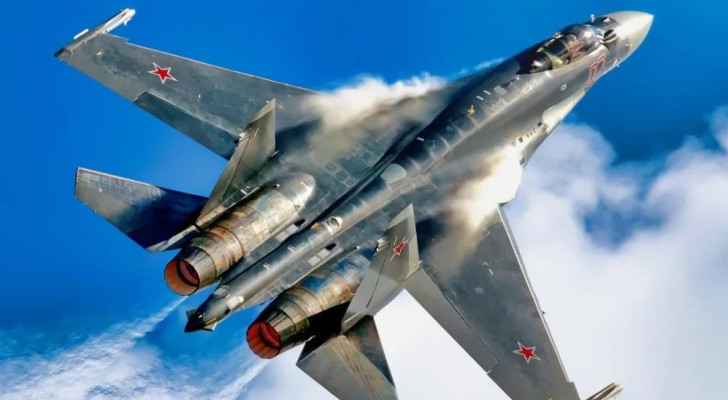Thucydides Trap and trickle-down effect of US-China ties - By Sabena Siddiqui, Alarabiya
Managing the world’s most important geopolitical relationship is not an easy task, especially when US-China ties have a global influence and trickle-down effect to all their allies.
In recent years, the historical Thucydides’s Trap Theory has been used quite often to describe the US-China equation and its risks. Reminding world leaders that war always remains more likely than peace and it is wise to exercise restraint constantly, this theory retains some relevance.
Analyzing the background of the ancient Greek Peloponnesian war, Thucydides, a 5th century BCE historian, had concluded that it became inevitable as, “It was the rise of Athens, and the fear that this instilled in Sparta, that made war inevitable.”
ALSO READ: Why China’s Belt and Road Initiative is more than just new ‘great game’
Being the dominant power, Sparta had pre-emptively attacked the rising power, Athens, even though it may not have been a real threat. At the end of the day, it was the dominant Sparta that was victorious but it was a long war that lasted three decades.
Presenting the Thucydides Trap as one of the greatest mis-judgements of history, Professor Graham Allison from the Harvard University was the first to use it in reference to the US and China. Having identified 16 similar cases over the last 500 years, Allison was worried that out of those sixteen scenarios, twelve resulted in war.
Highlighting similarities, he said that the “Thucydides’s Trap is the dangerous dynamic that occurs when a rising power threatens to displace a ruling power. That is actually the best lens for understanding what’s happening in relations between a rising China and a ruling United States today.”
Ways to avoid war
Identifying five ways to avoid war between the two, based on observations regarding the previous experience of the Cold War, Allison had stressed that, firstly, war between nuclear powers is “mutually assured destruction.”
Secondly, leaders must remember that they risk a war they cannot win. Thirdly, more space should be created to reduce risks by creating new “precarious rules of the status quo.” Fourthly, the domestic economy is most vital for both powers to maintain peace. Lastly, relying on hope is no real strategy.
Alarmingly, one of the biggest examples of the Thucydides trap theory being validated in recent times has been the breaking out of World War 1. Even though Britain and Germany were the two largest trading partners globally just like the US and China, it did not prevent war.
Practically though, the absence of nuclear power probably made starting the war easier, while in the case of the Soviet Union and the US, the presence of nuclear weapons kept war at bay. But even though nuclear weapons have made great power conflict nearly obsolete, the stakes remain high.
ALSO READ: Is China’s BRI idea beginning to catch the world’s attention?
Even then, the assumption that war is inevitable is less relevant in this nuclear century and it is not practical to base foreign policy objectives on a 2400 -year old theory. Putting things in perspective, the US and China cannot fall into the Thucydides trap as many other factors determine their relations in this modern-day scenario.
With geo-economics determining the global power balance and the multiple dynamics at work, it is not compulsory that a growing power will be destined to conflict with a static power.
Nor is it definite that the power balance remains the same.Conflict is quite unlikely when both powers are co-dependent to such a huge extent that they got dubbed as ‘Chi-merica’ by historian Niall Ferguson and economist Moritz Schularick.
Dividing ‘Chimerica’ into two virtual units, they wrote, “To be sure, Chimerica is an economic but not a monetary unit; East Chimericans have the renminbi, West Chimericans the dollar. Nevertheless, the scale of the financial transactions between the two halves is comparable with the flows that traditionally have occurred within nation states rather than between them.”
Financial risk factors
Basically, divergences might have started ever since Beijing tried to reduce financial risk factors by introducing new foreign exchange policies to stabilize the yuan. Reducing China’s bilateral trade deficit with the US could still bring relations back on track to what they were in 2015 and balance the developing economic world order.
Recently, Richard Weitz, Director of the Centre for Political-Military Analysis at the Hudson Institute, participated in a very positive discussion at the Center for China and Globalization (CCG) in Beijing. Observing that the China-US trade dispute did not represent the beginning an economic Cold War, the expert stated that they had just “hit a rough patch.”
ALSO READ: China’s geo-economic interests and Middle East energy industry
Removing the commercial conflict of interest could lead to a breakthrough in bilateral relations, notwithstanding the wide range of smaller differences of opinion, remaining engaged and maintaining dialogue is the best way to reduce friction.
Interestingly, the year 2018 also marks the 40th anniversary of the signing of the Joint Communique on the Establishment of Diplomatic Relations between China and the United States, thus Sino-US ties are now four decades old and there can be no better time than this to get over their “rough patch.”
Latest News
Most Read Articles
- JAF carries out 8 more airdrops of aid to northern Gaza
- Trump postpones first rally since trial began, due to bad weather
- King attends civil defence exercise
- Netanyahu vows to increase military pressure on Hamas
- “Israeli” army says it approved plans for “continuation of war in Gaza”
- 25.3% increase in tourism departures in 2024 — report
- Housing Bank Holds Its 51st General Assembly Meeting
- Hundreds in Niger tell US troops to go home
- Violence-battered Ecuadorans vote on anti-crime measures
- Visa to launch global innovation programmme 'VEI' in Levant region for first time in June




